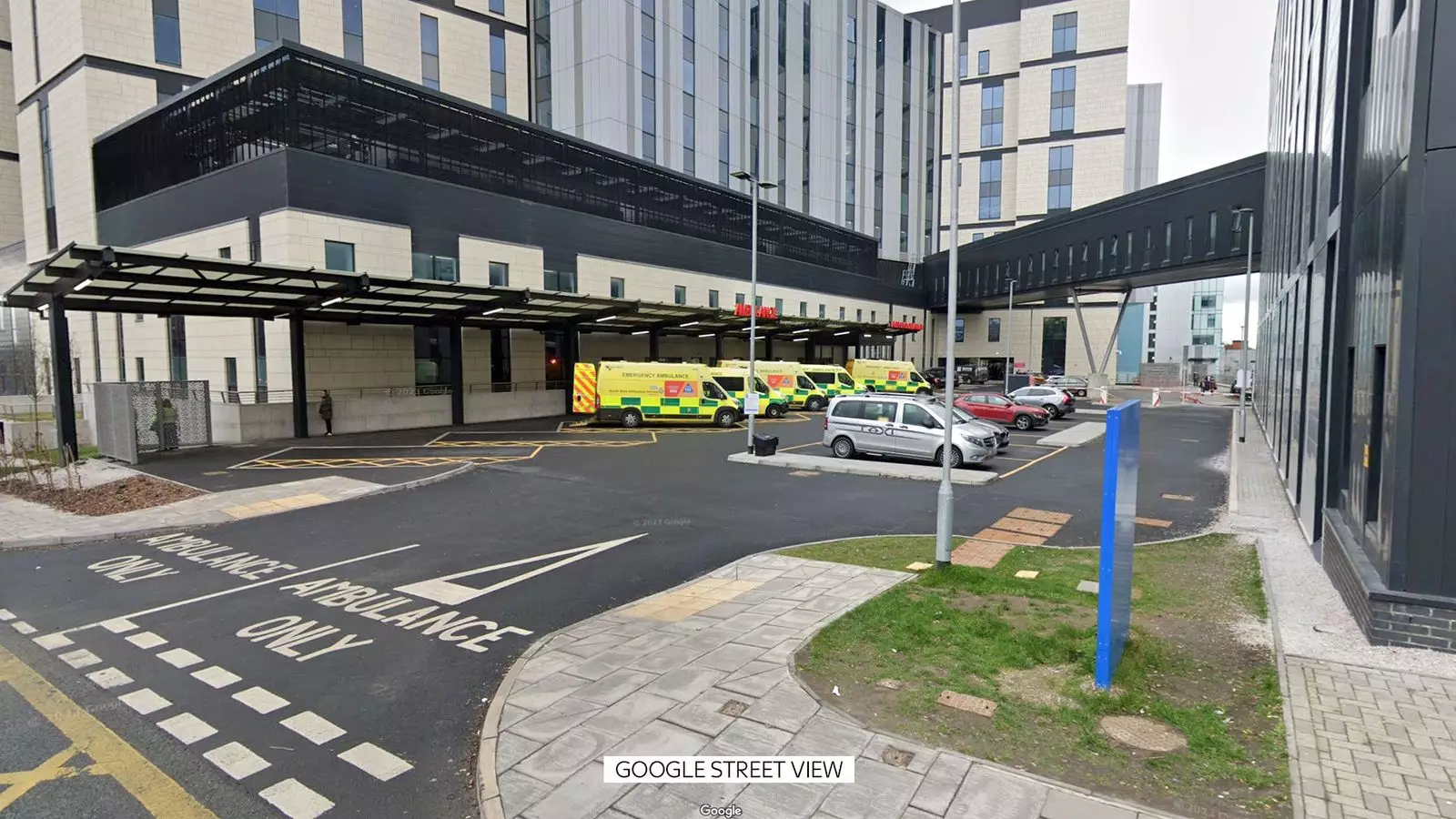The Royal Liverpool University Hospital, a central healthcare facility in the region, has recently declared a critical incident due to overwhelming demand for its Accident & Emergency (A&E) services. This urgent decision follows a marked increase in patients, particularly those suffering from flu and respiratory illnesses, pushing the hospital’s capacity to its limits. The situation reflects a broader trend, as NHS data indicates a staggering fourfold rise in flu cases among hospital patients throughout England over the past month, highlighting the health challenges currently facing the nation.
In light of these mounting pressures, hospital officials have espoused a detailed management plan aimed at navigating the complexities of this crisis. A spokesperson for Royal Liverpool has affirmed their commitment to implementing all necessary measures to address the situation effectively. Collaboration with partner organizations is a critical component of this strategy, particularly focusing on ensuring that patients who are medically capable of being discharged can leave safely and promptly. However, the hospital has issued a stark caution to the public: patients presenting less urgent cases are being advised to seek treatment through their general practitioners or local pharmacies, rather than overwhelming the emergency department.
The declaration of a critical incident serves as both a signal and a call to action. It is a formal acknowledgment that the hospital cannot operate under its usual protocols due to exceptionally high demand or staffing challenges. This allows the facility to prioritize care for the most critically ill patients and activate contingency plans for additional support from external agencies. The duration of such incidents can vary, lasting anywhere from a few hours to potentially several weeks, depending on how the situation evolves. This necessity was echoed recently by the NHS Cornwall and Isles of Scilly Integrated Care Board, which reported an alarming increase in inpatient numbers compared to the previous year.
As winter progresses, public health experts have issued warnings about a potential “quad-demic,” which refers to the simultaneous circulation of flu, norovirus, COVID-19, and RSV (Respiratory Syncytial Virus). The convergence of these viruses poses an unprecedented challenge for the healthcare system. In response, NHS initiatives have ramped up vaccination efforts against flu and COVID-19, along with targeting RSV, which is notorious for causing severe respiratory infections in infants and young children. This proactive approach is critical in mitigating the impact of these illnesses, yet the pressures on emergency services remain.
As the Royal Liverpool University Hospital braces for the coming weeks, community engagement and understanding will be vital. The health system relies not just on institutional responses, but also on public awareness about when to seek emergency care versus alternative medical advice. Educating the community about available resources and the importance of using them appropriately can help relieve some of the pressures on emergency services. With the situation still evolving, the hospital’s management team continues to remain vigilant, adjusting their strategies as necessary to ensure the safety and health of everyone in the area.
The Royal Liverpool University Hospital’s current state reflects a significant healthcare crisis that requires both immediate and long-term solutions. As the community comes together to support each other through this challenging period, the hope is that both patients and healthcare providers will navigate these tumultuous times with resilience and solidarity.

